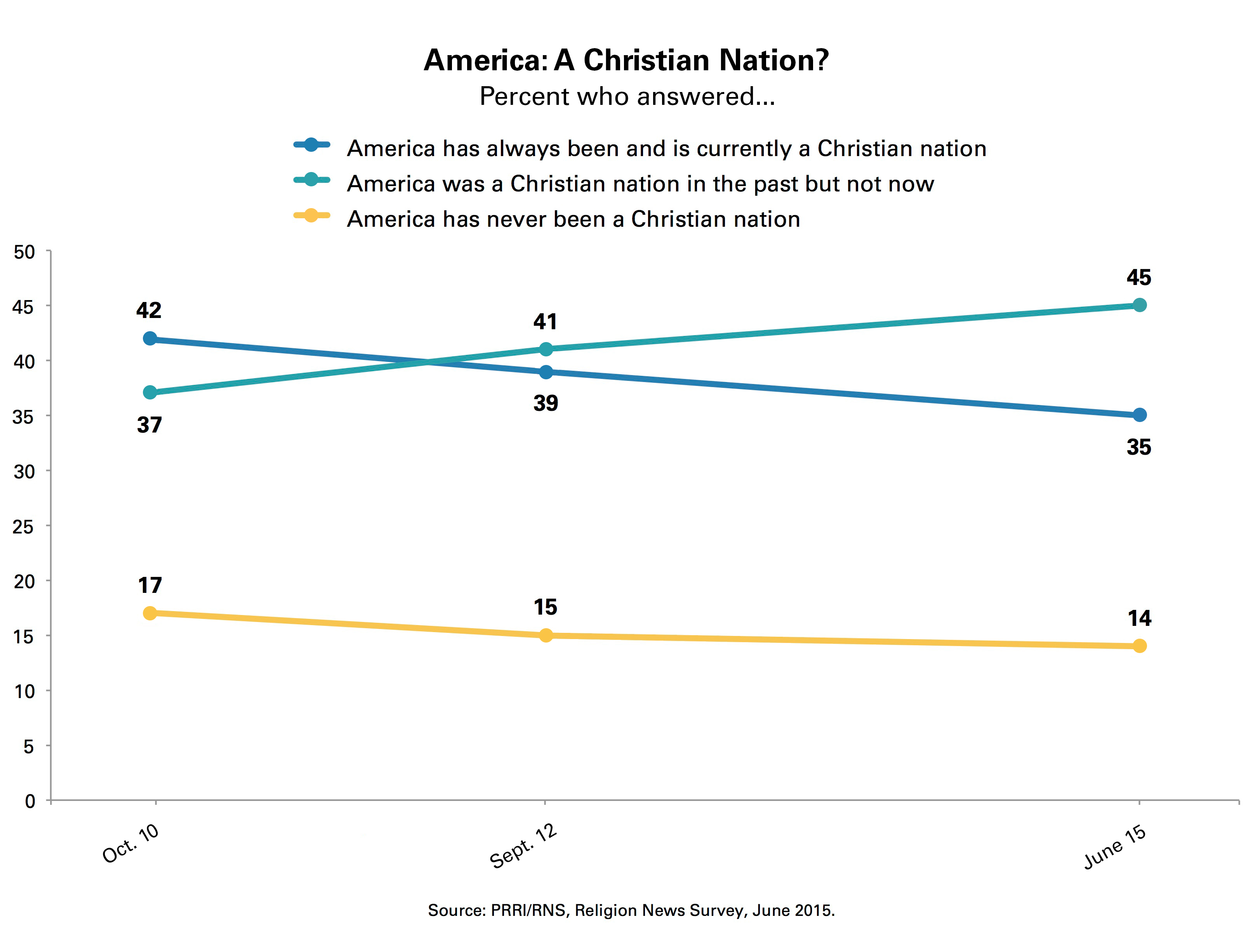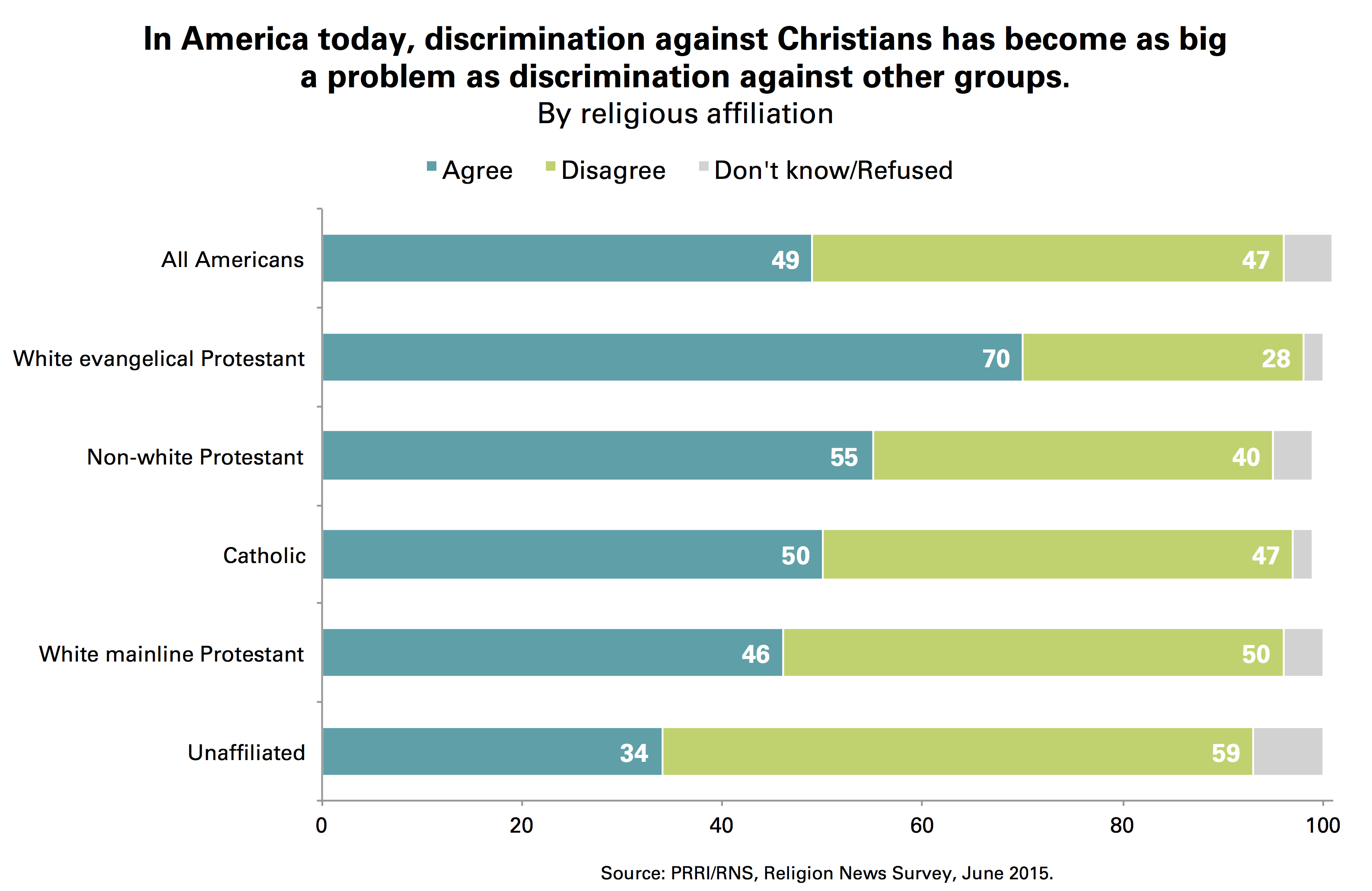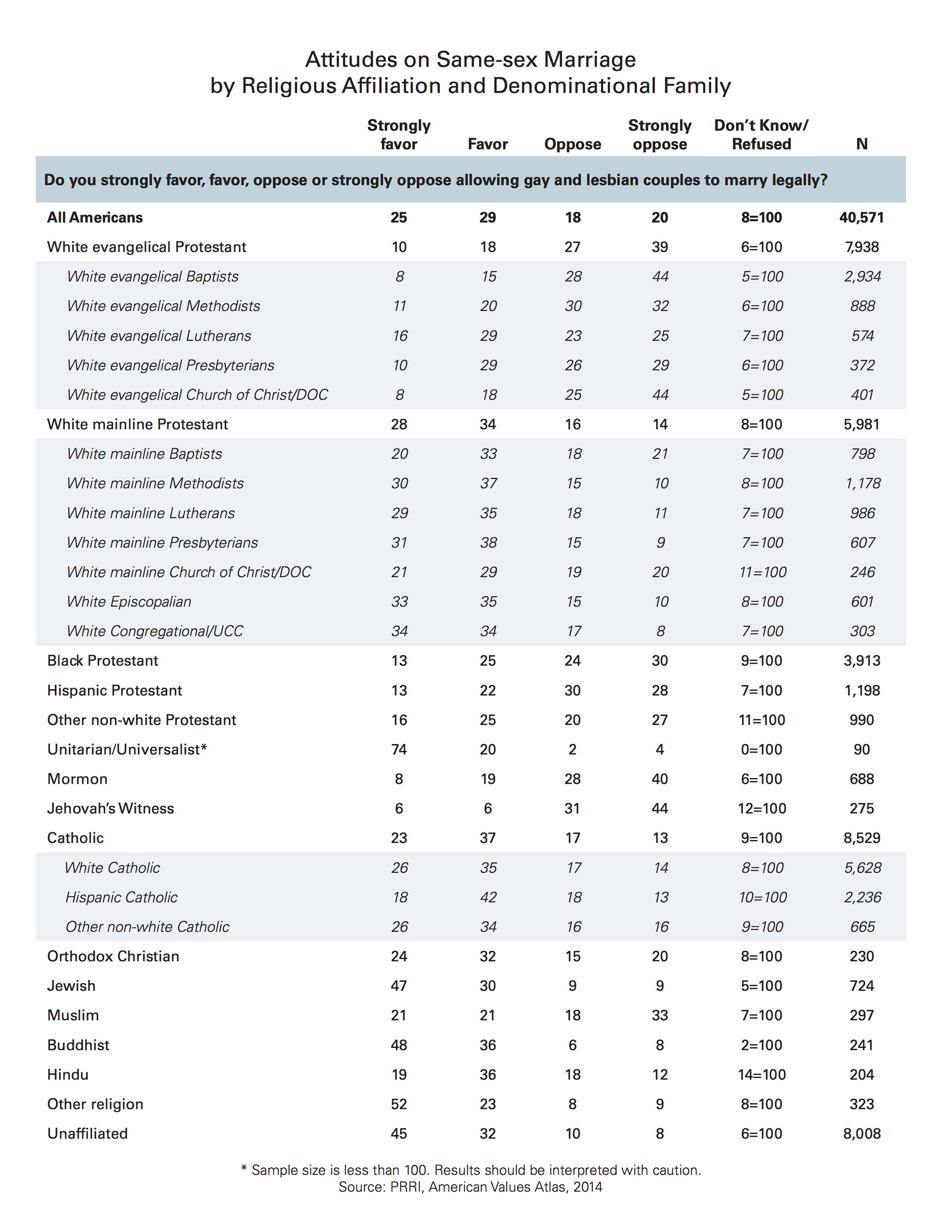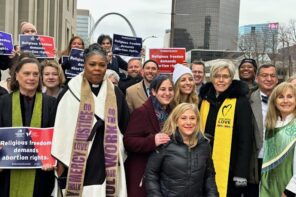After a year that included Pope Francis’ first visit to the U.S., the ongoing battle over “religious freedom” laws, and shifting views about America’s Christian heritage, we took a look back on some of the more important—and surprising—findings about American Christians and Christianity in the U.S.
1) America: No longer a Christian nation.
Most Americans don’t think the U.S. is currently a Christian nation. Slightly more than one-third (35%) believe the U.S. was in the past, and remains today, a Christian nation; close to half (45%) say the U.S. was a Christian nation but no longer is, and 14% say the U.S. has never been a Christian nation.
These findings represent an important shift: In 2010, more than four in ten (42%) said the U.S. has always been and is currently a Christian nation. The change is likely attributable to the increasing diversity of the religious landscape and the rise of the religiously unaffiliated.
2) Are Christians being discriminated against? Depends on who you ask.
Although more than seven in ten American adults identify as Christian, concerns about discrimination against Christians appear to be increasing, with some groups voicing more concern than others. Nearly half (49%) of the public say that discrimination against Christians has become as big of a problem as discrimination against other groups, while nearly as many (47%) disagree. However, 56% of Christians, including a whopping seven in ten (70%) white evangelical Protestants, say Christians are facing levels of discrimination akin to that experienced by other groups.
3) Pope Francis buoys the Catholic Church.
Pope Francis may just be the best thing to happen to the Catholic Church in some time: two-thirds (67%) of Americans have a favorable view of the Pope while a more modest majority (56%) say the same about the Catholic Church. And while Catholics view both the Church and the Pontifex very positively (89% and 90%, respectively), former Catholics have much more positive feelings about the pope (64%) than the Catholic Church (43%).
Pope Francis is also more popular among American Catholics than the U.S. Bishops. Fully eight in ten (80%) Catholics say that Pope Francis understands the needs and views of American Catholics, while fewer (60%) say the same of the American Bishops.

5) …but Christians are divided on same-sex marriage.
Similar numbers favor (46%) and oppose (46%) allowing gay and lesbian couples to marry legally—but attitudes vary significantly by denomination, with white Evangelical Protestants, Mormons, and Jehovah’s Witnesses being most strongly opposed, and Unitarian/Universalists, white mainline Protestants, and Catholics most strongly in favor.
6) Americans’ double standard on religious violence.
When it comes to those who commit acts of violence in the name of religion, Americans are more likely to reject perpetrators who claim a Christian identity than those who say they are Muslims. Three-quarters (75%) of Americans say that self-identified Christians who commit acts of violence in the name of Christianity are not really Christian. In contrast, only half (50%) say that self-proclaimed Muslims who commit acts of violence in the name of Islam are not really Muslim. Thirty-seven percent say these perpetrators really are Muslim, while 13% offer no opinion.
For more, visit www.publicreligion.org or check out PRRI’s Facebook page.








